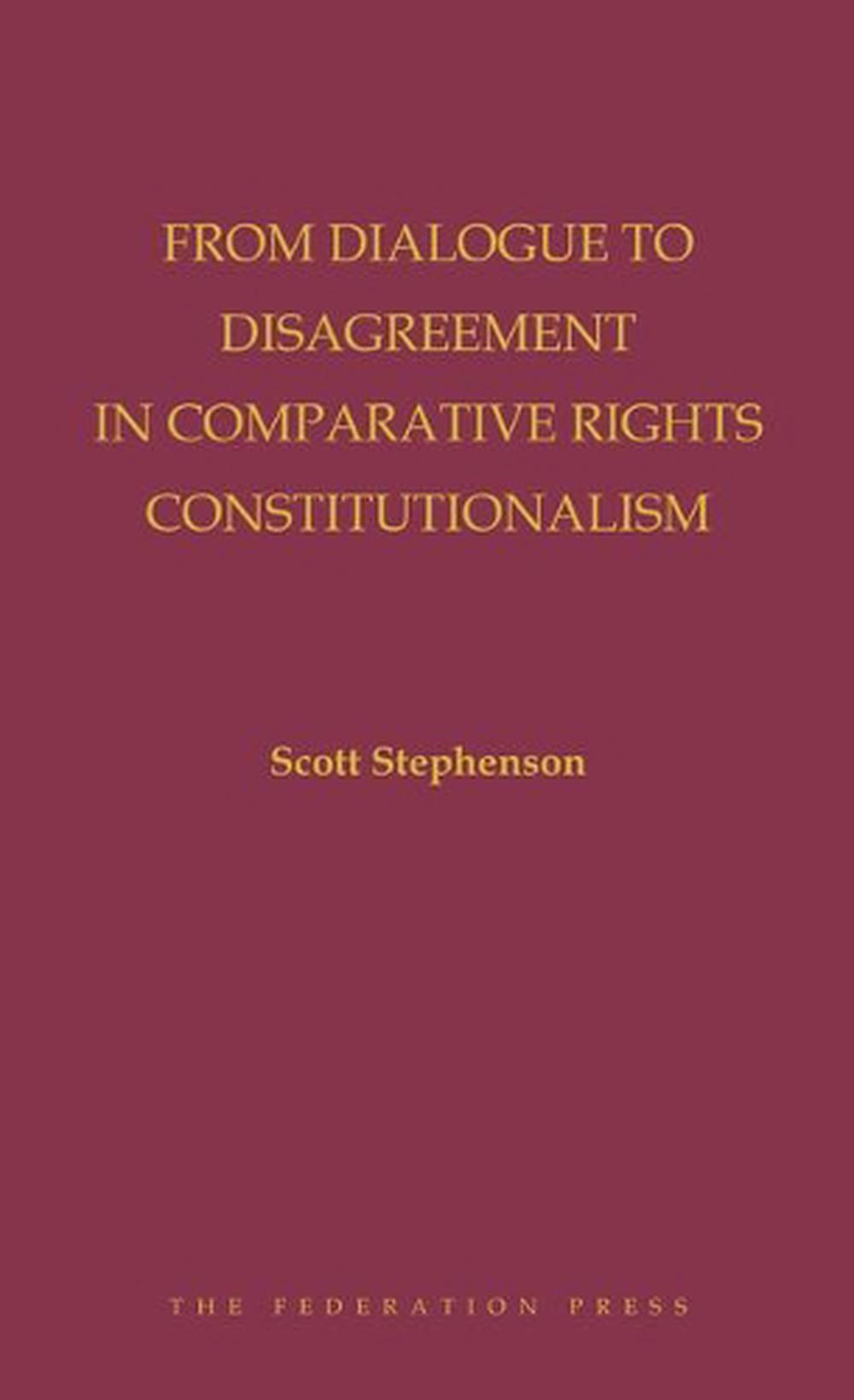
From Dialogue to Disagreement in Comparative Rights Constitutionalism
$103.95
- Hardcover
272 pages
- Release Date
27 September 2016
Summary
The bills of rights adopted in the Commonwealth countries of Canada, New Zealand, the United Kingdom and, at the subnational level, Australia in recent decades, have prompted scholars and institutional actors involved in the process of constitutional design and reform to rethink how to evaluate and compare the different approaches to human rights protection. They have challenged a number of assumptions in the field, for example, that courts must have the power to invalidate laws that are foun…
Book Details
| ISBN-13: | 9781760020675 |
|---|---|
| ISBN-10: | 1760020672 |
| Author: | Scott Stephenson |
| Publisher: | Federation Press |
| Imprint: | Federation Press |
| Format: | Hardcover |
| Number of Pages: | 272 |
| Release Date: | 27 September 2016 |
| Weight: | 630g |
| Dimensions: | 234mm x 156mm |
| Series: | Holt Prize |
What They're Saying
Critics Review
While Dr Stephenson’s first treatise, From Dialogue to Disagreement in Comparative Rights Constitutionalism is, in many respects, a continuation of this trend in public law scholarship, the project distinguishes itself admirably from existing veins within this literature. It achieves success with this commendable effort by adopting quite a novel framework through which to view judicial review and constitutionalism. This becomes a framework Stephenson then applies in later chapters to four major Commonwealth jurisdictions-the UK, Canada, Australia, and New Zealand. … Stephenson’s work makes an important contribution to the existing literature. We commend his excellent comparativism - especially with respect to the nuanced exposition of inter-institutional disagreements, which are common across the four jurisdictions. From Dialogue to Disagreement will undoubtedly become familiar to law librarians everywhere, and can be recommended to socio-legal scholars, those focused purely on constitutional doctrine, and the well-read general reader. Those seismic shifts may not cease anytime soon, but at least we have new tools to examine whatever rises from the deepest constitutional strata. Read full review… - Daniel Davison-Vecchione and Charlie Eastaugh, Public Law UK, April 2017 In 2015 Dr Scott Stephenson was one of the two inaugural winners of the prestigious Holt Prize, a biannual publishing award which recognises excellence in unpublished legal works of an academic or practical nature, named after the late Christopher Holt, a co-founder of the Federation Press. This book is the product of that award. “From Dialogue to Disagreement” considers the constitutional approaches to rights protection in a number of Commonwealth jurisdictions. It is of particular and timely relevance to Queensland, where the government recently announced its intention to introduce a Human Rights Act based on the Victorian Charter of Human Rights and Responsibilities. Dr Stephenson describes the human rights instruments which have developed in Australia, Canada, New Zealand and the United Kingdom as examples of “multi-stage rights review”. These frameworks depart from the previous dichotomy between judicial supremacy (through judicial review) and legislative supremacy (through parliamentary sovereignty) to involve a number of different institutions in sometimes novel ways. The innovative premise of this book is that these approaches - though commonly known as “dialogue models” of human rights protection - are best analysed by reference to the disagreement, rather than dialogue, that they foster between institutional actors. This striking yet persuasive approach is justified by close investigation of the difficult, controversial and complex nature of human rights matters and issues that have arisen in each jurisdiction. Dr Stephenson focuses on three questions arising from the adoption of multi -stage rights review in the four Commonwealth countries. First, he considers how these models differ from pre-existing systems grounded in an orthodox dichotomy between judicial and legislative supremacy. Second, he asks why, if at all, one should prefer the “Commonwealth approach” to rights constitutionalism over traditional paradigms. Third, he queries what compromises must be struck in the course of adopting human rights charters and the implementation of the enacted instruments. As the Honourable Chief Justice of Australia says in his Foreword, this book is both a thoughtful and penetrating work which casts a fresh perspective on modern approaches to rights protection in Commonwealth jurisdictions. As such, it is a valuable and timely work and a worthy recipient of one of Australia’s most prestigious publishing awards. - Queensland Law Reporter - 16 December 2016 - [2016]
About The Author
Scott Stephenson
Dr. Scott Stephenson is a Lecturer at Melbourne Law School, The University of Melbourne. His research focuses on topics of Australian and comparative constitutional law and theory, including the migration of constitutional ideas, models of rights protection, federalism, and international law’s effects on domestic constitutional doctrines.
After receiving his BA and LLB(Hons) with the University Medal in Law from the Australian National University, he worked at the High Court of Australia, first as the Court’s Legal Research Officer and then as Associate (Law Clerk) to Justice Virginia Bell AC. He then obtained his LLM and JSD from Yale University. While at Yale, he held the position of Tutor-in-Law for two years, was awarded the Fox International Fellowship to spend a year undertaking research at the University of Cambridge, and visited the University of Copenhagen’s Centre of Excellence for International Courts (iCourts).
He has published in a number of Australian, Irish, UK and international journals, including Dublin University Law Journal, International Journal of Constitutional Law, Melbourne University Law Review, and Public Law.
Returns
This item is eligible for free returns within 30 days of delivery. See our returns policy for further details.




